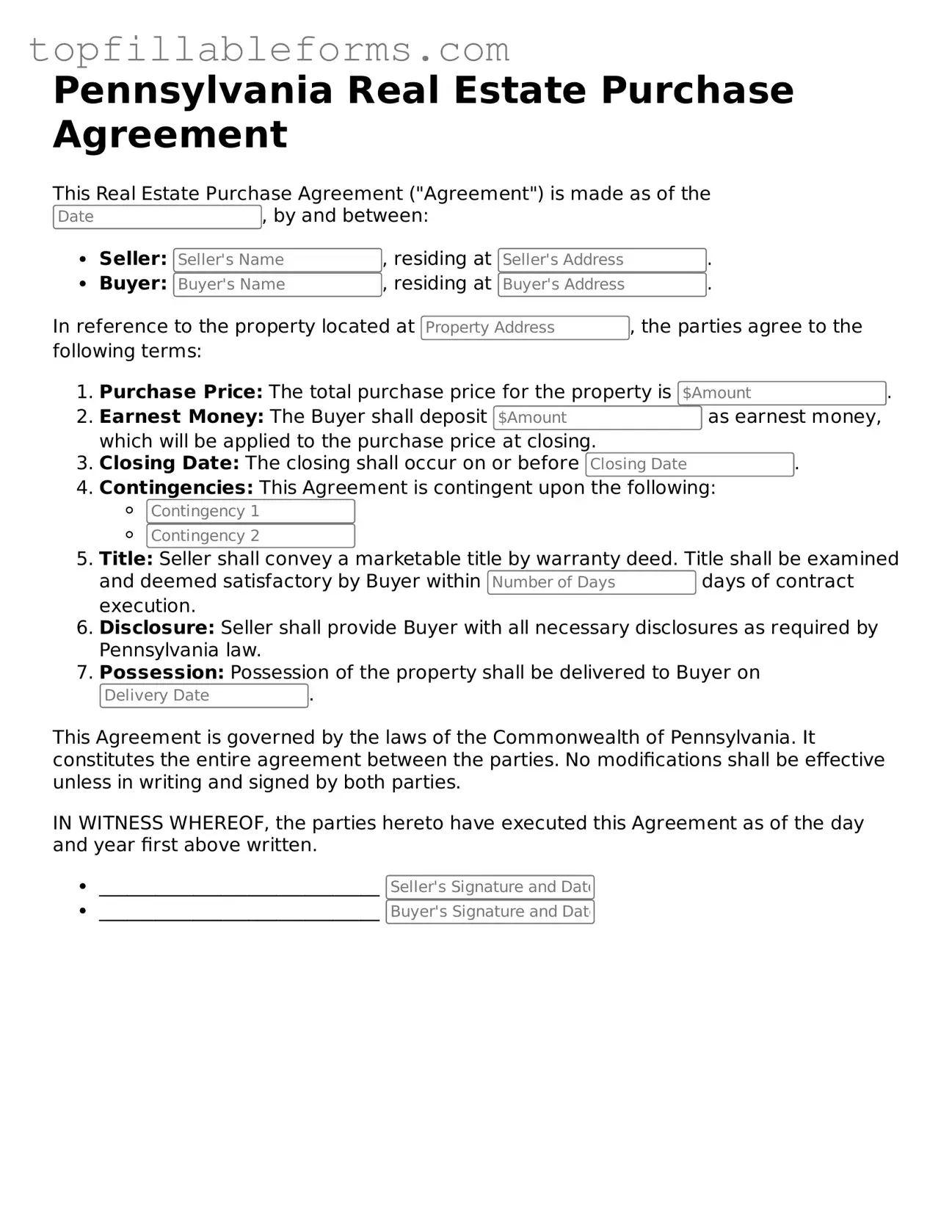Attorney-Verified Real Estate Purchase Agreement Template for Pennsylvania
The Pennsylvania Real Estate Purchase Agreement is a legal document that outlines the terms and conditions for the sale of real estate in Pennsylvania. This form serves as a binding contract between the buyer and seller, detailing their rights and obligations. Understanding this agreement is crucial for anyone involved in a real estate transaction in the state.
Open Real Estate Purchase Agreement Editor Here

Attorney-Verified Real Estate Purchase Agreement Template for Pennsylvania
Open Real Estate Purchase Agreement Editor Here
Finish the form now and be done
Finish your Real Estate Purchase Agreement online by editing, saving, and downloading fast.
Open Real Estate Purchase Agreement Editor Here
or
▼ PDF File
